
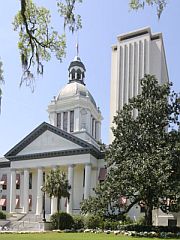 |
LEGISLATION PERCOLATES
THROUGH TALLAHASSEE |
April 12, 2008 - Until a few years ago, Galt Mile residents demonstrated limited interest in what transpired during the annual Legislative sessions in Tallahassee. Issues preoccupying people living in common interest residences reflect the values of the general population, characterized by a large quiet center flanked by noisy extremes to the right and left. Inasmuch, the political proclivities of association homeowners were as statistically varied as those in society at large. Having chosen to live in a vertical community defined by rules created and enforced by the resident homeowners provided little impetus for political cohesion. This marked lack of �political identity�, instead of cloaking condo owners in protective anonymity, has ironically made them a target in Tallahassee. During the past few years, lawmakers have filed truckloads of legislation supposedly designed to address existing statutory shortcomings. However, more often than not, they were repositories for ill-conceived, contradictory and poorly drafted regulations suffering a fatal disconnect from their stated objectives.
 The 2008 legislative session in our State Capitol was earmarked by a blizzard of Community Association bills. While the majority focused on Homeowner Associations, condominiums were also the targets of legislators either seeking to improve the lives of the State�s 1.4 million condo owners and 77,000 cooperative unit owners or spin self-serving political platforms. Additionally, the session was rife with bills created to rebalance the power of the Department of Business and Professional Regulation and the Division of Florida Land Sales, Condominiums and Mobile Homes. Following are some bills currently touring the State Capitol that, if passed, will either help stabilize or disrupt the 22,000 condominium and cooperative associations operating in the State of Florida.
The 2008 legislative session in our State Capitol was earmarked by a blizzard of Community Association bills. While the majority focused on Homeowner Associations, condominiums were also the targets of legislators either seeking to improve the lives of the State�s 1.4 million condo owners and 77,000 cooperative unit owners or spin self-serving political platforms. Additionally, the session was rife with bills created to rebalance the power of the Department of Business and Professional Regulation and the Division of Florida Land Sales, Condominiums and Mobile Homes. Following are some bills currently touring the State Capitol that, if passed, will either help stabilize or disrupt the 22,000 condominium and cooperative associations operating in the State of Florida.
There is a distinct possibility that many of the numerous community association bills filed during this Legislative Session will be consolidated into three separate bills: a condominium bill, a homeowners association bill and a regulation bill (filed on behalf of the Department of Business and Professional Regulation). If this occurs, the provisions in bills that address several association categories may be redistributed accordingly. The new reconfigured versions of these three bills are still in draft format and have not yet been filed. If and when they are, it is important that association members familiarize themselves with the content to ascertain whether they deserve support or angry emails.

Major 2008 Condominium Bills

HB 1349 - SB 2470

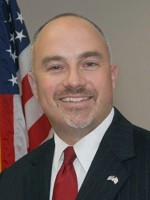 |
| REP. MATT HUDSON |
HB 1349, sponsored by Representative Matt Hudson, deals primarily with reconstruction after casualty for condominiums and emergency powers for condominiums. Current law fails to adequately address these two critically important issues.
With regard to reconstruction after casualty, the bill provides that after a casualty, if the association insures it, the association repairs it and if there is not enough money from insurance proceeds (because of a deductible or otherwise), the association will assess all of the members to pay for the repairs. The bill also provides that if an owner makes an improvement (for example, a balcony enclosure), the unit owner will be required to insure it and repair it after a casualty, even if outside of the unit boundaries.
 With regard to emergency powers, the bill provides associations with the ability to deal with emergency situations (such as drying out units to prevent mold damage, installing a temporary roof, etc) without having to convene the full board or the unit owners to make these decisions. In other words, it lets the board (or those that can be contacted) take care of these types of emergency situations that are necessary to mitigate further damage. It also allows the board to implement a disaster plan for before and after a casualty to protect the health, safety and welfare of the unit owners.
With regard to emergency powers, the bill provides associations with the ability to deal with emergency situations (such as drying out units to prevent mold damage, installing a temporary roof, etc) without having to convene the full board or the unit owners to make these decisions. In other words, it lets the board (or those that can be contacted) take care of these types of emergency situations that are necessary to mitigate further damage. It also allows the board to implement a disaster plan for before and after a casualty to protect the health, safety and welfare of the unit owners.
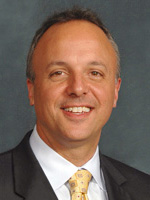 |
| SENATOR TED DEUTCH |
SB 2470, sponsored by Senator Ted Deutch, deals primarily with reconstruction after casualty for condominiums and emergency powers for condominiums. Current law fails to adequately address these two critically important issues.
The bill only applies when there is state of emergency declared by the governor.
After a casualty (such as a hurricane), owners are typically scattered throughout the country and do not immediately return to the condominium. The association needs to have the ability to deal with emergency situations (such as drying out units to prevent mold damage, putting on a temporary roof, etc) without having to convene the full board or the unit owners to make these decisions. In other words, it lets the board (or those that can be contacted) take care of these types of emergency situations that are necessary to mitigate further damage.
The bill allows the board to implement a disaster plan for before and after a casualty to protect the health, safety and welfare of the unit owners.
The emergency powers language in SB 2470 does not give the boards any more power then they currently have with respect to the levy of special assessments, except possibly in those cases where the condominium documents require a vote of the owners for special assessments. The intent of that portion of SB 2470 is to clarify that even where the documents require a vote of the owners for special assessments, that requirement will not apply in the event of a declared emergency.
Any powers given to the board with respect to special assessment, borrow money, and make repairs is limited to emergency repairs and to mitigate further damage (i.e., dry-in and dry-out the units).

HB 995 - SB 2084

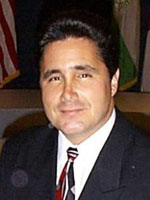 |
| REP. JULIO ROBAINA |
HB 995 sponsored by Rep. Julio Robaina, is 75 pages of regulations ranging from productive to disastrous. On the positive side, the bill prohibits unit owner access to certain personal identifying information of their neighbors, diminishing the opportunity for identity theft. It withholds from general scrutiny Social Security Numbers, medical information, banking data and information primarily useful for illegally raiding financial assets, establishing fake credit card accounts and recreating the basis for encumbering unwitting victims with myriad fraudulent debt vehicles. The bill enhances the security for cast election ballots by tightening their chain of custody, thereby protecting their integrity. The legislation revises protocols for notice, access to units and unit owner approval for assessments when reacting to emergency storm damage. It widens unit owner access to governance by placing an item endorsed by 20% of the members on the meeting agenda. The bill deters the use of SLAPP suits filed to intimidate unit owners engaging in whistle-blowing activities. The legislation�s sister bill in the Florida Senate is SB 2084, sponsored by Senator J. Alex Villalobos. Aside from sponsoring this bill, Senator J. Alex Villalobos� historical political interest in Community Association legislation has been marginal. However, like Representative Robaina, Senator Villalobos is component to a close-knit group of Miami legislators mutually supportive of one another�s political �platforms�.
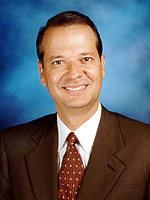 |
| SENATOR ALEX VILLALOBOS |
Unfortunately, Mr. Robaina�s longstanding predisposition for heavy handed regulations that transfer decision-making responsibilities from homeowners to Tallahassee is evident in Section 7, under �Unit owner meetings�. After deleting the statutory right of homeowners to configure the terms served by their elected board members, Robaina creates a regressive �one-size-fits-all� rule for the State�s 1.4 million condo owners, mandating that �The terms of all members of the board shall expire at the annual meeting.�
By a majority vote of the members, the bylaws of most associations define the terms that elected board members are expected to serve. Many associations with 5 or 7 member boards mandate staggered two year terms. Associations with 9 elected volunteers often opt for 2 or 3-year staggered terms. These multi-year terms are so structured to provide board members with adequate opportunity to accumulate experience and make productive contributions. Staggering the terms ensures continuity and stability by blending first time volunteers with more experienced board members.
 Newly elected Statehouse Representatives learn how to navigate their legislative responsibilities primarily from their more experienced peers. Having enigmatically decided that condominium boards would somehow benefit from an absence of experience and stability, Representative Robaina embodies an ideological contradiction. He demands a one-year term for every condominium board member while simultaneously serving a series of two-year terms in the Statehouse.
Newly elected Statehouse Representatives learn how to navigate their legislative responsibilities primarily from their more experienced peers. Having enigmatically decided that condominium boards would somehow benefit from an absence of experience and stability, Representative Robaina embodies an ideological contradiction. He demands a one-year term for every condominium board member while simultaneously serving a series of two-year terms in the Statehouse.
In addition to crippling self-governance by stripping homeowners of the right to decide how structuring their governing boards would best address their needs, the legislation would condemn every condominium to an unavoidable period of stagnant confusion as �lame duck� boards approach the annual meeting.
Another problem stems from the shortage of eligible candidates willing and able to address the association�s needs � often at the expense of their own. Condominium owners annually face the often futile challenge of convincing enough qualified candidates to donate their time, effort and experience to benefit their neighbors. When unsuccessful, the remaining board members are tasked with filling the open seats. Reducing terms of service by half will double the recruitment vacuum, significantly increasing the number of associations unable to recruit a full board. Perhaps coincidentally, the legislation�s Section 8 (no pun intended) also intensifies the punitive consequences for associations facing that dilemma, requiring that a �receiver� from Tallahassee take charge of the association�s affairs � for whose services the unit owners will foot the bill.
 HB 995 is burdened by expensive provisions with no apparent benefit. Based on actual engineering assessments, the cities of Miami and Fort Lauderdale passed ordinances requiring that buildings over 40 years of age undergo electrical and structural inspections to insure their residents� safety. Section 9 of Representative Robaina�s bill requires that every condominium greater than three stories in height be inspected every five years by an architect or engineer. It is not, however, to insure the safety of its occupants. As drafted, the architect or engineer will perform this expensive study to determine �the required maintenance, useful life, and replacement costs of the common elements.� This information is only useful for one thing � creating a fiscal basis for funding the respective reserves needed to address the replacement of these common elements.
HB 995 is burdened by expensive provisions with no apparent benefit. Based on actual engineering assessments, the cities of Miami and Fort Lauderdale passed ordinances requiring that buildings over 40 years of age undergo electrical and structural inspections to insure their residents� safety. Section 9 of Representative Robaina�s bill requires that every condominium greater than three stories in height be inspected every five years by an architect or engineer. It is not, however, to insure the safety of its occupants. As drafted, the architect or engineer will perform this expensive study to determine �the required maintenance, useful life, and replacement costs of the common elements.� This information is only useful for one thing � creating a fiscal basis for funding the respective reserves needed to address the replacement of these common elements.
Upon replacing the roof or waterproofing the deck, we currently elicit feedback from the engineer and warranty data from the manufacturer and/or vendor to provide a basis for ascertaining the improvement�s required maintenance, its useful life and replacement cost. By depreciating the projected replacement cost over the useful life of the asset, the association can tailor the reserve assessment to a project�s anticipated funding needs. Since this technique for structuring reserves costs the association nothing, paying tens of thousands of dollars every five years to the same engineer to accrue the same information available for nothing when the item is replaced is insipid.
A preferable variation that would have instead considered residents� safety might have delayed implementation for newer code-compliant structures and thereafter accelerated inspections as the building aged. Since the provision�s expressed rationale, as currently constructed, offers no ostensible benefit, the attendant price tag is outrageous.
 HB 995 is also characterized by numerous threats to any condo owner volunteering service on the association�s board of administration. In Section 6, the bill holds an officer or a director that commits a reckless omission personally liable for the same monetary damages as an officer or a director that commits a violation of criminal law. A poorly drafted provision claiming to protect accounting records contends that if even marginally significant items are lost or misplaced within 7 years of inception, non-complicit board members and officers will personally suffer the same civil penalties as persons who �knowingly or intentionally deface or destroy accounting records.�
HB 995 is also characterized by numerous threats to any condo owner volunteering service on the association�s board of administration. In Section 6, the bill holds an officer or a director that commits a reckless omission personally liable for the same monetary damages as an officer or a director that commits a violation of criminal law. A poorly drafted provision claiming to protect accounting records contends that if even marginally significant items are lost or misplaced within 7 years of inception, non-complicit board members and officers will personally suffer the same civil penalties as persons who �knowingly or intentionally deface or destroy accounting records.�
The bill transfers the decision about waiving financial reports from the unit owners to Tallahassee if the unit owners waive compliance for one year. Following that, a majority vote by the unit owners will no longer allow the members to postpone formulating a financial report. This will mostly affect smaller associations, as a 12 or 15 unit association rarely exhibits a need for a full blown financial report unless they had to apply for some manner of financing or required it to settle some legal entanglement about the association�s finances. Otherwise, the expense would divert funds from needed improvements.
What Can I Do?

 Since our Statehouse Representative, Ellyn Bogdanoff, has continuously solicited constituent input for use in shaping her voting proclivities, you might consider sending her an email by Clicking Here ([email protected]) and informing her as to whether you would like her to support or oppose House Bill 995! GO ON - DO IT! Similarly, tou can send an email to Senator Jeffrey Atwater expressing your sentiments about the legislation's Senate counterpart by Clicking Here ([email protected]), asking that he vote for or against Senate Bill 2084 becoming law.
Since our Statehouse Representative, Ellyn Bogdanoff, has continuously solicited constituent input for use in shaping her voting proclivities, you might consider sending her an email by Clicking Here ([email protected]) and informing her as to whether you would like her to support or oppose House Bill 995! GO ON - DO IT! Similarly, tou can send an email to Senator Jeffrey Atwater expressing your sentiments about the legislation's Senate counterpart by Clicking Here ([email protected]), asking that he vote for or against Senate Bill 2084 becoming law.

HB 679 - SB 2504

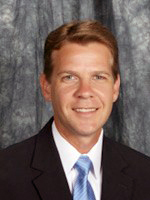 |
| REP. ANDY GARDINER |
HB 679 sponsored by Representative Andy Gardiner, is another community association megabill impacting both condominiums and homeowners associations. It sister bill in the Senate is SB 2504, sponsored by Senator Bill Posey. The following describes some of the more significant Condominium impacts:
The bill addresses reconstruction after experiencing a casualty for condominiums. It seeks to incorporate into law many of the same changes described in HB 1349 in the Statehouse and SB 2470 in the Senate.
Raises the thresholds for the required financial statement based upon the association�s total annual revenues. The change will require an audit if the association�s total annual revenues are $600,000.00 or more (currently $400,000.00), a review if the total annual revenues are at least $300,000.00 but less than $600,000.00 (currently between $200,000.00 and $400,000.00), and a compiled financial statement if the total annual revenues are $150,000.00 or more but less than $300,000.00 (currently between $100,000.00 and $200,000.00). A reported cash receipts and expenditures would be required if the total annual revenues are less than $150,000.00 (currently $100,000.00).
Prohibits an association from waiving the required financial statements for three consecutive years. In other words, they could waive for three consecutive years but the fourth year they could not waive.
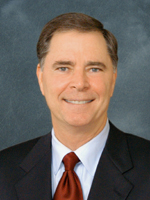 |
| SENATOR BILL POSEY |
Permits twenty percent of the voting interests to petition the board to address an item of business. In such case, the board, at its next regular board meeting or at a special meeting, but not later than sixty days after receipt of the petition, must take the petitioned item up on agenda. Require reserves for other items for which the cost exceeds �the greater of $10,000.00 or $300.00 multiplied by the number of units.� Currently, the statute requires reserves for any other item for which the deferred maintenance expense replacement cost exceeds $10,000.00.
Adds an additional thirty day notice requirement prior to recording a lien and requires that the notice to be sent via certified mail.
Provides that unit owners will be afforded not less than sixty (60) days advance notice to pay estimated nonemergency special assessments.
Provides for emergency powers in response to damage caused by an event for which a state of emergency is declared in the locale in which the condominium is located.
Requires unit owners that are not developers to, on or after January 1, 2009, provide prospective purchasers with a �governance form� prepared by the Division of Florida Land Sales, Condominiums and Mobile Homes, summarizing governance of condominium associations. Specifies the subjects that must be included in the governance form adopted by the Division.
What�s Next?

 Since our Statehouse Representative, Ellyn Bogdanoff, has continuously solicited constituent input for use in shaping her voting proclivities, you might consider sending her an email by Clicking Here and informing her as to whether you would like her to support or oppose the legislation! GO ON - DO IT!
Since our Statehouse Representative, Ellyn Bogdanoff, has continuously solicited constituent input for use in shaping her voting proclivities, you might consider sending her an email by Clicking Here and informing her as to whether you would like her to support or oppose the legislation! GO ON - DO IT!

SB 2086 - SB 2498 - HB 1249

 |
| SENATOR DENNIS L. JONES |
SB 2086 sponsored by Senator Dennis L. Jones, is a bill relating to Department of Business and Professional Regulation which enjoys the strong support of the Real Property Section of the Florida Bar Association. Requires that hazard insurance be based upon the replacement cost of the property to be insured as determined by an independent insurance appraisal or update of a prior appraisal. Provides for coverage by developer-controlled associations. Changes the name of the Division of Florida Land Sales, Condominiums, and Mobile Homes to the Division of Florida Condominiums, Timeshares, and Mobile Homes, etc. Its sister bill in the Florida Statehouse is HB 1249 sponsored by Representative Thad Altman. On March 25th, it was combined with SB 2498 sponsored by Senator Michael S. Bennett, which removes the requirement for a farm labor contractor to file a set of fingerprints with the Department of Business and Professional Regulation (DBPR). Authorizes the DBPR to close and terminate deficient license applications, etc. The combined legislation carries the following impacts:
 |
| SENATOR MICHAEL BENNETT |
Addresses reconstruction after casualty of condominiums. This is the same change as described above in SB 2470. Provides that unless the manner of payment is otherwise addressed in the declaration of condominium, the expenses for any items or services required by an federal, state, or local government entity to be installed, maintained or supplied to the condominium property by the association including but not limited to fire safety equipment or water and sewer service where a master meter serves the condominium, shall be a common expense whether or not such services are specifically identified as a common expense.
Provides that a condominium association can only charge an estoppel fee if the fee has been established by written resolution adopted by the board or by written management, bookkeeping, or maintenance contract.
Permits homeowners' associations to charge a fee for the preparation of estoppel certificates, similar to condominium associations.
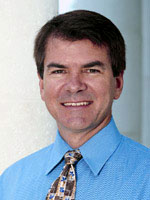 |
| REP. THAD ALTMAN |
HB 1249 sponsored by Representative Thad Altman, is a bill that impacts Community Associations. Its provisions are summarized as follows: Revises & provides provisions relating to condominium & condominium owner insurance coverage; authorizes association or group of associations to provide adequate hazard insurance through self-insurance fund; provides that policies may include deductibles as determined by board; provides requirements for deductibles; provides coverage requirements for certain policies; requires owners to provide evidence of currently effective policy of hazard & liability insurance upon request by association; authorizes operation of multiple condominiums as single condominium for insurance purposes under certain circumstances; requires association to obtain & maintain adequate insurance or fidelity bonding of specified persons; specifies responsibility for repair or reconstruction work under specified circumstances; specifies common expense responsibilities of association & unit owners; provides persons that may request certificate signed by officer or agent of association stating all assessments & other moneys owed to association; provides requirements for charging of certain fees by board; revises priority standards for distribution of certain proceeds from any sale of condominium properties & assets; provides requirements for request & provision of estoppel certificates.

HB 253 - SB 550


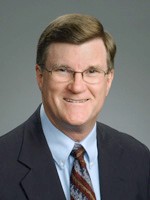 |
| REP. JAMES C. FRISHE |
HB 253 sponsored by Representative James C. "Jim" Frishe in the Florida House of Representatives and SB 550, its counterpart in the Florida Senate (sponsored by Senator Dennis L. Jones, D.C.), relates to Elevator Safety/Alternative Power Sources. The current law requires residential multi-family dwellings (including cooperatives and condominiums) that are 75 feet or higher to have access to an alternate power source after a natural disaster (i.e., a generator to power an elevator and certain interior lighting). The law applies to buildings built after October 1, 1997. Currently, the law requires an association to provide to the local building inspection agency verification of engineering plans providing for the capability to generate power by alternate means by December 31, 2006. These bills would extend that date to December 31, 2010. Furthermore, the law currently requires that compliance with installation and operational capability requirements be verified by local building inspectors and reported to the County emergency management agency by December 31, 2007. These bills extend that date to December 31, 2011.

SB 564 - HB 243


 |
| SENATOR LEE CONSTANTINE |
SB 564 sponsored by the Senate Committee on Judiciary, the Senate Committee on Health Regulation and Senator Lee Constantine, is a bill related to Automated External Defibrillators. Revises provisions relating to the maintenance of and training requirements for the use of automated external defibrillators. Revises provisions encouraging notice of the location of such defibrillators to the medical director of the local emergency medical services. Revises requirements for civil immunity for the use or attempted use of a defibrillator on a victim of a perceived medical emergency, etc. The bill is designed to promote the use of Automated External Defibrillators by the general public and facilitate their widespread installation into large public and private buildings (including condominiums and cooperatives).
 |
| REP. THOMAS ANDERSON |
Its Statehouse counterpart is HB 243, sponsored by Healthcare Council and Representative Thomas "Tom" Anderson. As in the Senate version, the bill relates to Automated External Defibrillators. The intention of the bills are spelled out in the Bill Title opening. It says, "It is the intent of the Legislature that an automated external defibrillator may be used by any person for the purpose of saving the life of another person in cardiac arrest. In order to achieve that goal, the Legislature intends to encourage training in lifesaving first aid and set standards for and encourage the use of automated external defibrillators." The bill enables this legislative intent by removing much of the bureaucratic housekeeping and encourages training by anyone proximal to an AED unit.

Click To Top of Page
Ombudsman Danille Carroll



Addresses Galt Mile Associations

 |
| CONDOMINIUM OMBUDSMAN DANILLE R. CARROLL |
March 23, 2008 - Danille R. Carroll (pronounced Danielle) is one of two Condominium Ombudsmen functioning in the United States. Florida and Nevada each created an office to serve as an educational intermediary between millions of condominium dwellers and the State bureaucracy responsible for administering regulatory guidelines. Appointed by Governor Jeb Bush in 2006, she has molded the office into the entity condo owners expected upon its initial inception. By adopting unwavering neutrality, she mitigated much of the adversarial atmosphere that surrounded the office under former occupant Dr. Virgil Rizzo.
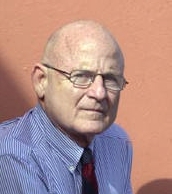 |
FORMER CONDOMINIUM
OMBUDSMAN DR. VIRGIL RIZZO |
During his tenure, Dr. Rizzo expressed regret at not being able to �take a baseball bat� to or �to put the handcuffs on� the association members he was mandated to help educate. Following two years of suffering political fallout from Rizzo�s predisposition for alienation, Governor Bush pulled the plug � sending him a note stating, �This is to advise you that your appointment as ombudsman is rescinded effective June 1, 2006.� The Governor simultaneously appointed Danille Carroll, then a 39-year old Department of Health assistant general counsel, as Rizzo�s replacement.
Graduating in 1988 with a B.S. in criminal justice from Florida International University in Miami and from the University of Texas School of Law in 1992, Ms. Carroll practiced in the private sector in Houston and Miami (The Curtis and Kimball Co.) until 2002 when she went to work for the state Department of Environmental Protection in West Palm Beach. One year later she became an assistant general counsel for the Health Department. Her appointment to the $80,800 a year Ombudsman position was welcomed by the Department of Business and Professional Regulation (DBPR).
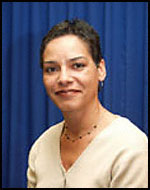 |
FORMER DBPR SECRETARY
SIMONE MARSTILLER |
Former DBPR Communications Director Meg Shannon stated, �She is accomplished, experienced and coming from a leadership position in the Department of Health. She is ready to hit the ground running and ready to work cooperatively with the department for the betterment of the millions of Floridians living in condos.� In contrast, Shannon disparaged the Department�s relationship with Carroll�s predecessor, exclaiming, �Dr. Rizzo consistently demonstrated an unwillingness to work within the system and at times refused to be held accountable to the department and to taxpayers.� Rizzo�s stock with the Department plummeted after warning then DBPR Secretary Simone Marstiller �not to interfere� with his operation.
 |
REPRESENTATIVE
JULIO ROBAINA |
Criticism of the Governor�s decision came primarily from Representative Julio Robaina and other Miami legislators responsible for the annual �Condo Killer� bills. As expected, the leadership of an anti-Association group in which Dr. Rizzo held membership also protested his dismissal. Committed instead to neutrality, Carroll conveyed her expectation to communicate with representatives reflecting all sides of condo issues, stating, �That�s what the Legislature intended, to bring everyone together. I believe they can and I�m the one to do it. The Legislature intended for me to be a neutral person, someone in the middle, someone without a horse in the race.� Since her appointment, Carroll has steadfastly kept her commitment.
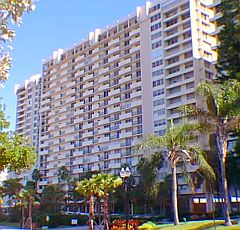 |
| PLAZA EAST CONDOMINIUM |
On March 10th, she addressed a meeting of the Galt Mile Community Association Presidents Council at the Plaza East Condominium. About 140 Board Officials and Directors from almost every member association were joined by several dozen committee volunteers and residents at the 7:30 PM meeting. Of these, most attended to better understand Ms. Carroll�s vision of the Ombudsman�s function and how her office might facilitate the resolution of common operational problems.
After being introduced, she opened with, �My mandate is to create a forum that reaches out equally to associations and all unit owners irrespective of their opinions or ideology. My office is available to every condominium owner, including Board members. The most important tool at my disposal is education.� Advising attendees that she was a great proponent of open governance, Ms. Carroll recommended that condo boards extend themselves to keep members informed about relevant issues. Underscoring the importance of effectively communicating with unit owners, she commented, �If you produce a good board meeting, it will serve to encourage greater member participation.�
 The Ombudsman spoke at length about the misconceptions she regularly faces. Disgruntled unit owners would call her office expecting an intimidating ally for use against a neighbor, a group of building residents, a particular board member, an entire Board or an entire Association. Instead, they learn about the governing statutes, their Association documents and other rules applicable to their Association. By superimposing the complainant�s regulatory environment over the issue, the Ombudsman is able to put the problem into perspective. Those unit owners or Board members seeking clarification of their rights are often satisfied. Those seeking vengeance or �blood on the walls� are generally disappointed.
The Ombudsman spoke at length about the misconceptions she regularly faces. Disgruntled unit owners would call her office expecting an intimidating ally for use against a neighbor, a group of building residents, a particular board member, an entire Board or an entire Association. Instead, they learn about the governing statutes, their Association documents and other rules applicable to their Association. By superimposing the complainant�s regulatory environment over the issue, the Ombudsman is able to put the problem into perspective. Those unit owners or Board members seeking clarification of their rights are often satisfied. Those seeking vengeance or �blood on the walls� are generally disappointed.
 Ms. Carroll presented a cross-section of the Ombudsman�s functions, describing some of the issues about which her office is regularly contacted. She touched on her election monitoring responsibilities, participation by Cooperatives, her relationship with other State regulatory agencies, member access to association records, and the importance of neutrality and education to her credibility as an effective moderator. One common source of confusion involves unit owner access to Association documents. She explained that the bare-bones statutory mandate for member access to an association�s records can conflict with other regulatory requirements and responsibilities.
Ms. Carroll presented a cross-section of the Ombudsman�s functions, describing some of the issues about which her office is regularly contacted. She touched on her election monitoring responsibilities, participation by Cooperatives, her relationship with other State regulatory agencies, member access to association records, and the importance of neutrality and education to her credibility as an effective moderator. One common source of confusion involves unit owner access to Association documents. She explained that the bare-bones statutory mandate for member access to an association�s records can conflict with other regulatory requirements and responsibilities.
 Addressing this issue, she expressed her awareness of cases wherein unit owners weren�t actually seeking particular documents, but instead were embarking on fishing expeditions, looking for anything that supported their preconceived belief that proof of some unidentified wrongdoing was buried somewhere in the condominium documents. Even if motivated by some misdirected campaign to repay some perceived slight, Carroll maintained, �They are still entitled to review the Association records if they are members in good standing. However, they have no right to disrupt the administrative operations of the building office.� To that end, Carroll explained, �A Board may establish reasonable limits when granting access. For example, they may restrict access to once or twice a month for any particular unit owner.� She continued, �Personally, I recommend twice a month, but either is acceptable.� The Ombudsman acknowledged that a Board�s responsibility to insure that the Association operated properly includes protecting it from attempts to disrupt those operations, whether inadvertent, capricious or malicious. Another reasonable criterion is for a unit owner to request specific documents which can be assembled beforehand, facilitating the resident�s request while minimizing disruption.
Addressing this issue, she expressed her awareness of cases wherein unit owners weren�t actually seeking particular documents, but instead were embarking on fishing expeditions, looking for anything that supported their preconceived belief that proof of some unidentified wrongdoing was buried somewhere in the condominium documents. Even if motivated by some misdirected campaign to repay some perceived slight, Carroll maintained, �They are still entitled to review the Association records if they are members in good standing. However, they have no right to disrupt the administrative operations of the building office.� To that end, Carroll explained, �A Board may establish reasonable limits when granting access. For example, they may restrict access to once or twice a month for any particular unit owner.� She continued, �Personally, I recommend twice a month, but either is acceptable.� The Ombudsman acknowledged that a Board�s responsibility to insure that the Association operated properly includes protecting it from attempts to disrupt those operations, whether inadvertent, capricious or malicious. Another reasonable criterion is for a unit owner to request specific documents which can be assembled beforehand, facilitating the resident�s request while minimizing disruption.
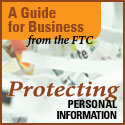 Ms. Carroll then admonished the audience that while unit owners are entitled to review association records, the Association Board is also responsible for protecting certain records from unrestricted access. She said, �Any documents referring to legal issues or correspondences with the Association attorney should be withheld from scrutiny.� The Ombudsman also exclaimed that documents containing information useful for identity theft must also be protected, stating �You should protect unit owners� Social Security Numbers, bank account information, medical records and other information submitted in confidence.�
Ms. Carroll then admonished the audience that while unit owners are entitled to review association records, the Association Board is also responsible for protecting certain records from unrestricted access. She said, �Any documents referring to legal issues or correspondences with the Association attorney should be withheld from scrutiny.� The Ombudsman also exclaimed that documents containing information useful for identity theft must also be protected, stating �You should protect unit owners� Social Security Numbers, bank account information, medical records and other information submitted in confidence.�
 Unrestricted access to association records has caused irreparable damage to thousands of association members across the country. In associations wherein Boards failed to monitor unit owner access to condo records, unscrupulous thieves exploited association membership, copying social security numbers, financial account data, contact information for second and third residences, records detailing confidential medical information, confidential emergency telephone numbers, etc. in preparation for appropriating their neighbors� identities. The Association�s unsuspecting members suddenly and simultaneously suffered looted bank accounts and responsibility for fraudulent financing commitments for a variety of items including vehicles, furniture and real estate. Credit card charges for accounts illegally opened in the victims� names amounted to tens of thousands of dollars.
Unrestricted access to association records has caused irreparable damage to thousands of association members across the country. In associations wherein Boards failed to monitor unit owner access to condo records, unscrupulous thieves exploited association membership, copying social security numbers, financial account data, contact information for second and third residences, records detailing confidential medical information, confidential emergency telephone numbers, etc. in preparation for appropriating their neighbors� identities. The Association�s unsuspecting members suddenly and simultaneously suffered looted bank accounts and responsibility for fraudulent financing commitments for a variety of items including vehicles, furniture and real estate. Credit card charges for accounts illegally opened in the victims� names amounted to tens of thousands of dollars.
 Beneficiaries of this $5 billion criminal enterprise consider this fertile environment �easy pickings�. Since they are afforded statutory access to their associations� records, predators dodge the illegal �pretexting� or �dumpster diving� activities that ordinarily serve to incriminate suspects, minimizing risk and exposure to legal retribution. While opening association records to member scrutiny effectively encourages and/or confirms the absence of fiscal abuse, without applying judicious exemptions for identity-sensitive data (the harvesting of which is useful only for perpetrating fraud or outright theft), battalions of new targets will join the 27 million Americans already victimized.
Beneficiaries of this $5 billion criminal enterprise consider this fertile environment �easy pickings�. Since they are afforded statutory access to their associations� records, predators dodge the illegal �pretexting� or �dumpster diving� activities that ordinarily serve to incriminate suspects, minimizing risk and exposure to legal retribution. While opening association records to member scrutiny effectively encourages and/or confirms the absence of fiscal abuse, without applying judicious exemptions for identity-sensitive data (the harvesting of which is useful only for perpetrating fraud or outright theft), battalions of new targets will join the 27 million Americans already victimized.
 Another common scam is often successfully perpetrated without its victims� ever knowing that they were targeted. Following the serial hurricanes of 2004 and 2005, it became critical for condo associations to contact out-of-residence unit owners about repairing storm-damaged unit elements. Instead of only accumulating their neighbors� official contact data (their association address and local telephone number) when perusing the Association records, confidential telephone numbers given for hurricane alerts or medical emergencies are harvested and sold at top dollar to a thriving black market �listings� industry. Hundreds of marketing companies buy and sell �contact lists� of preferably high-end addresses and confidential telephone numbers for use in making �cold calls� to potential customers. When perplexed members suddenly receive a spate of marketing calls on their confidential line or �junk mail� at their other home, they ordinarily assume the contacts to be random and accidental. An attending attorney from Katzman and Korr, a law firm specializing in Association law, verified the dangers of not exercising reasonable judgment and responsible oversight when providing access to an Association�s documents.
Another common scam is often successfully perpetrated without its victims� ever knowing that they were targeted. Following the serial hurricanes of 2004 and 2005, it became critical for condo associations to contact out-of-residence unit owners about repairing storm-damaged unit elements. Instead of only accumulating their neighbors� official contact data (their association address and local telephone number) when perusing the Association records, confidential telephone numbers given for hurricane alerts or medical emergencies are harvested and sold at top dollar to a thriving black market �listings� industry. Hundreds of marketing companies buy and sell �contact lists� of preferably high-end addresses and confidential telephone numbers for use in making �cold calls� to potential customers. When perplexed members suddenly receive a spate of marketing calls on their confidential line or �junk mail� at their other home, they ordinarily assume the contacts to be random and accidental. An attending attorney from Katzman and Korr, a law firm specializing in Association law, verified the dangers of not exercising reasonable judgment and responsible oversight when providing access to an Association�s documents.
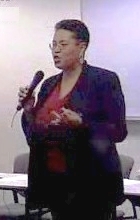 |
OMBUDSMAN CARROLL EXPLAINS
CONDOMINIUM ISSUES |
When asked by audience members about other specific examples of irresponsible data exposure, the Ombudsman lamented that the governing statute doesn�t address every category of information that should be protected. Agreeing with the attorney�s earlier comment, she explained, �There are certain types of sensitive information that require responsible oversight by the Board. To help make these decisions, it�s a good idea to consult the Association lawyer. Since they are already familiar with the Condominium Act (Chapter 718, Florida Statutes) and the association documents, your condo attorneys are best positioned to evaluate the prospective damage to unit owners by exposing potentially harmful data.�
A Director from one of the Galt Mile�s six cooperatives asked the Ombudsman if the residents and board members of cooperatives could also use the services provided by her office. Ms. Carroll answered, �I�m sorry, our resources aren�t available to cooperative residents or their associations. We are constrained by our enabling legislation to focus only on condominiums.� Homeowner Associations are also precluded from using the Ombudsman to help clarify issues surrounding conflicts. �Things may change in that regard,� explained Carroll. �Some legislators would like to see our services expanded to assist other association members. If our lawmakers in Tallahassee pass the appropriate legislation, we would then be permitted to help educate Cooperative Associations, Homeowner Associations, their members and their Boards.�
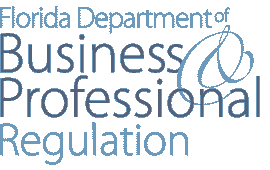 Addressing the Ombudsman, a council member said that the Ombudsman�s office appears to duplicate many of the functions of the Department of Business and Professional Regulations (DBPR) and its subsidiary Division of Land Sales, Condominiums and Mobile Homes (DLSCMH). He asked the Ombudsman to clarify the relationships between her office and these agencies. She said that the Division of Land Sales, Condominiums and Mobile Homes (the Division) is an arm of the Department of Business and Professional Regulation (the Department). Designed as a support agency, the Division was originally conceived to protect Condominium purchasers from attempts by devious developers to retain control of the Board for nefarious purposes. To preclude developers from continuously influencing Association policy through the use of �shill� candidates, regulations were instituted governing the eligibility and behavior of volunteers for a condominium board. Under their mandate, the Division launched thousands of Condominium Associations throughout the State into unencumbered self-governance.
Addressing the Ombudsman, a council member said that the Ombudsman�s office appears to duplicate many of the functions of the Department of Business and Professional Regulations (DBPR) and its subsidiary Division of Land Sales, Condominiums and Mobile Homes (DLSCMH). He asked the Ombudsman to clarify the relationships between her office and these agencies. She said that the Division of Land Sales, Condominiums and Mobile Homes (the Division) is an arm of the Department of Business and Professional Regulation (the Department). Designed as a support agency, the Division was originally conceived to protect Condominium purchasers from attempts by devious developers to retain control of the Board for nefarious purposes. To preclude developers from continuously influencing Association policy through the use of �shill� candidates, regulations were instituted governing the eligibility and behavior of volunteers for a condominium board. Under their mandate, the Division launched thousands of Condominium Associations throughout the State into unencumbered self-governance.
The Division has authority to enforce the laws of Chapter 718, Florida Statutes (the Condominium Act); and Chapter 719, Florida Statutes (the Cooperative Act), and the authority to adopt administrative rules necessary to implement, enforce and interpret these laws. For condominiums, the rules can be found in Chapters 61B-15 through 61B-24 of the Florida Administrative Code. For cooperatives, the rules can be found in Chapters 61B-75 through 61B-79 of the Florida Administrative Code. They also have responsibilities to Homeowner Associations as described in Chapter 720, Florida Statutes.
 In addition to relieving associations of inappropriate developer control, the Division provides training programs for condominium and cooperative association board members and unit owners through a privately contracted vendor (i.e. The Community Associations Institute). The Division also operates a certification program for both volunteer and paid mediators to help resolve condominium and cooperative disputes and maintains a toll-free telephone number for condominium and cooperative board members and unit owners (800-226-9101). To ensure compliance with the provisions of Chapters 718 and 719, the Division adopted administrative rules identifying which action to take for various eligible complaints. The rules distinguish between developer violations and violations by unit owner controlled associations. It also designates violations as either major or minor, provides for different methods of complaint resolution, considers repeat violations as well as aggravating and mitigating factors, and provides for civil penalties.
In addition to relieving associations of inappropriate developer control, the Division provides training programs for condominium and cooperative association board members and unit owners through a privately contracted vendor (i.e. The Community Associations Institute). The Division also operates a certification program for both volunteer and paid mediators to help resolve condominium and cooperative disputes and maintains a toll-free telephone number for condominium and cooperative board members and unit owners (800-226-9101). To ensure compliance with the provisions of Chapters 718 and 719, the Division adopted administrative rules identifying which action to take for various eligible complaints. The rules distinguish between developer violations and violations by unit owner controlled associations. It also designates violations as either major or minor, provides for different methods of complaint resolution, considers repeat violations as well as aggravating and mitigating factors, and provides for civil penalties.
In contrast with the Division�s responsibilities, the Condominium Ombudsman prepares and issues reports and recommendations on any matter or subject within the jurisdiction of the Division and makes recommendations for legislation to facilitate or clarify Division procedures, rules, jurisdiction, personnel, and functions. She�s a liaison between the Division, unit owners, boards of directors, board members, community association managers, and other affected parties. The ombudsman develops policies and procedures to assist these parties to understand their rights and responsibilities as set forth in Statute and their respective governing documents. Ombudsman Carroll also participates in the preparation and adoption of educational and reference material, and � working with private or volunteer service providers � uses these resources to educate the widest possible audience.
 Ms. Carroll�s office monitors and reviews procedures and disputes concerning condominium elections or meetings and recommends that the Division pursue enforcement action where there is reasonable cause to believe that election misconduct has occurred. She explained that 15% of an association�s total voting interests or six condo unit owners (whichever number is greater) may petition the ombudsman to appoint an election monitor to attend the annual meeting of the unit owners and conduct the election of directors. When asked about the qualifications of election monitors, she said that a monitor could be a Division employee, a person with authoritative training in condominium election monitoring, or an attorney licensed to practice in Florida.
Ms. Carroll�s office monitors and reviews procedures and disputes concerning condominium elections or meetings and recommends that the Division pursue enforcement action where there is reasonable cause to believe that election misconduct has occurred. She explained that 15% of an association�s total voting interests or six condo unit owners (whichever number is greater) may petition the ombudsman to appoint an election monitor to attend the annual meeting of the unit owners and conduct the election of directors. When asked about the qualifications of election monitors, she said that a monitor could be a Division employee, a person with authoritative training in condominium election monitoring, or an attorney licensed to practice in Florida.
 Her efforts are often sought by conflict participants as a precursor to applying to the Division or pursuing court action. The Condominium Ombudsman encourages and facilitates voluntary meetings with and between unit owners, boards of directors, board members, community association managers, etc. when the meetings may assist in resolving a dispute within a community association before it�s submitted for a formal or administrative remedy. The Ombudsman acts as a neutral resource for the rights and responsibilities of unit owners, associations, and board members. Carroll�s reputation for neutrality has contributed heavily to rebuilding the Ombudsman�s credibility with Associations and their members.
Her efforts are often sought by conflict participants as a precursor to applying to the Division or pursuing court action. The Condominium Ombudsman encourages and facilitates voluntary meetings with and between unit owners, boards of directors, board members, community association managers, etc. when the meetings may assist in resolving a dispute within a community association before it�s submitted for a formal or administrative remedy. The Ombudsman acts as a neutral resource for the rights and responsibilities of unit owners, associations, and board members. Carroll�s reputation for neutrality has contributed heavily to rebuilding the Ombudsman�s credibility with Associations and their members.
 Further addressing the distinction between her office and the division, she summarized, �The Division was formed to guide associations to operational self-governance by ensuring compliance with rules (statutes, condo docs, etc.).� As expressed in its Mission Statement, the Office of the Condominium Ombudsman exists to �improve the quality of life for Florida condominium owners through prompt, professional and courteous service as a neutral, informative and accessible resource.� Since the Division procedures are subject to Department oversight, it takes time for an issue to move through the bureaucratic and often redundant processes that are generically built into most governmental hierarchies. Explaining that the Ombudsman�s office is an independent entity, Carroll said, �We aren�t answerable to them, they simply handle the resources that fund our operations.� Ms. Carroll expressed the primary difference between the division and her office as expediency. �While my office mirrors some of the division�s duties and responsibilities, we are able to react more quickly to correct problems.� When putting out fires (or resolving conflicts between neighbors), this is a distinct advantage.
Further addressing the distinction between her office and the division, she summarized, �The Division was formed to guide associations to operational self-governance by ensuring compliance with rules (statutes, condo docs, etc.).� As expressed in its Mission Statement, the Office of the Condominium Ombudsman exists to �improve the quality of life for Florida condominium owners through prompt, professional and courteous service as a neutral, informative and accessible resource.� Since the Division procedures are subject to Department oversight, it takes time for an issue to move through the bureaucratic and often redundant processes that are generically built into most governmental hierarchies. Explaining that the Ombudsman�s office is an independent entity, Carroll said, �We aren�t answerable to them, they simply handle the resources that fund our operations.� Ms. Carroll expressed the primary difference between the division and her office as expediency. �While my office mirrors some of the division�s duties and responsibilities, we are able to react more quickly to correct problems.� When putting out fires (or resolving conflicts between neighbors), this is a distinct advantage.
 Since her appointment, Ms. Carroll has not only demonstrated that she believes in her mission, but that she is extremely good at it. When condo owners learned that her predecessor recommended legislation to replace every association�s governing documents with a one-size-fits-all set developed by bureaucrats instead of an association�s homeowners, doubts about the Ombudsman�s motives proliferated exponentially. Danille has successfully mitigated concerns stirred by her predecessor that the Ombudsman is a state-sponsored prosecutor with a radical political agenda bent on disassembling Association self-governance. In fact, Cooperative owners who thought themselves fortunate for being excluded from participation with the previous Ombudsman have reversed course 180 degrees after meeting Ms. Carroll. Even budget hawks that wince at the prospect of taxpayer-supported �bureaucratic service duplication� reconsider after hearing Ms. Carroll describe her mission. In a recent interview, she quoted former Indian Prime Minister Indira Gandhi: �There can be no handshake with clenched fists.� Her talent for bringing people together is matched by the exuberance and perspicacity with which she exercises that talent.
Since her appointment, Ms. Carroll has not only demonstrated that she believes in her mission, but that she is extremely good at it. When condo owners learned that her predecessor recommended legislation to replace every association�s governing documents with a one-size-fits-all set developed by bureaucrats instead of an association�s homeowners, doubts about the Ombudsman�s motives proliferated exponentially. Danille has successfully mitigated concerns stirred by her predecessor that the Ombudsman is a state-sponsored prosecutor with a radical political agenda bent on disassembling Association self-governance. In fact, Cooperative owners who thought themselves fortunate for being excluded from participation with the previous Ombudsman have reversed course 180 degrees after meeting Ms. Carroll. Even budget hawks that wince at the prospect of taxpayer-supported �bureaucratic service duplication� reconsider after hearing Ms. Carroll describe her mission. In a recent interview, she quoted former Indian Prime Minister Indira Gandhi: �There can be no handshake with clenched fists.� Her talent for bringing people together is matched by the exuberance and perspicacity with which she exercises that talent.
Unfortunately, the time allotted for Ms. Carroll�s address, although substantially longer than ordinarily set aside for visiting officials, proved to be woefully inadequate. Dozens of attendees expressed their disappointment at not being afforded sufficient opportunity to continue the community discourse with the Ombudsman. Hopefully, we will prevail upon Ms. Carroll to attend a future meeting in which she will fill the entire agenda.
 To contact Florida Condominium Ombudsman Danille R. Carroll, call her 1400 W. Commercial Boulevard office in Fort Lauderdale at (954) 202-3234 or her 1940 North Monroe Street office in Tallahassee at (850) 922-7671. You can also contact her using her DBPR email address at [email protected]. Click Here to her Condominium Ombudsman web page.
To contact Florida Condominium Ombudsman Danille R. Carroll, call her 1400 W. Commercial Boulevard office in Fort Lauderdale at (954) 202-3234 or her 1940 North Monroe Street office in Tallahassee at (850) 922-7671. You can also contact her using her DBPR email address at [email protected]. Click Here to her Condominium Ombudsman web page.
Click To Top of Page
Rep. Bogdanoff�s Pre-Session Newsletter



Representative Ellyn Bogdanoff, District 91

 |
REPRESENTATIVE
ELLYN BOGDANOFF |
March 11, 2008 - * Given her responsibilities as our Statehouse Representative and as policy educator for her peers in the Florida House of Representatives (as the �Majority Whip�), constituents are largely unaware of Ellyn Bogdanoff�s personal legislative agenda. During her tenure in the Statehouse, Ellyn has mounted unheralded crusades to address an eclectic collection of low profile issues that would have otherwise remained orphans. Her commitment to ending tyrannical schoolyard intimidation exercised by abusive students against their schoolmates (and teachers) has gained national notoriety. She has also made palpable inroads in her campaign to improve access to the national wine market by Floridians.
 |
| JEFFREY JOHNSTON |
Her 2006 School Safety bill (HB 535) was a nationally acclaimed model for protecting students from bullies. Although it died in messages on the session�s final day, a grassroots organization established to promote legislation and awareness on this issue - Bully Police USA - described her bill as �a benchmark template for the entire nation.� They declared that if ever enacted, it would become their �officially endorsed legislation.�
Empowered by a twisted conversance with a new generation�s technological tools, many of the victims of yore have ironically joined the predatory ranks previously predominated by muscle. This new class of �bullies� has replaced the threatened �black eye� with the prospective theft of their victim�s identity. Modernized to incorporate �cyber-bullying�, the 2008 incarnation of Florida�s anti-bullying legislation (Jeff�s Law) is House Bill 669 (HB 669) in the Statehouse and Senate Bill 88 (SB 88), a companion filing in the Florida Senate. Jeff�s Law, A.K.A. �Jeffrey Johnston Stand Up for All Students Act�, is named for a 15-year old Cape Coral student whose tragic suicide followed two years of �cyber-bullying� by a classmate.
 |
| "FREE THE GRAPE" |
She has also crusaded to allow Floridians direct access to nationwide wine shipments, a right long denied to Florida residents through some clandestine legislative footwork by the State wine distribution industry. Although a recent favorable Supreme Court ruling fostered a successful challenge to the distributor-backed market restrictions, the court failed to provide adequate enforcement criteria, thereby limiting consequences for non-compliance to symbolic wrist-slappings. However, with the legal handwriting on the wall, distributors hope to negotiate a deal before their window of opportunity completely closes. Ellyn is seated across the table.
As usual, Ellyn invites constituents to contact her office with legislative concerns. Read On! - [editor]*
Representative Ellyn Bogdanoff�s

Personal Legislative Agenda
�Dear Neighbor:
There are a couple of issues I have worked on for several years that I look forward to concluding this year. I thought I would update you before session, as I plan to bring back my weekly emails from the Capitol when session begins in March:
School Bullying Legislation

The school bully is no longer the biggest kid on the playground. Unsupervised and anonymous electronic communication provides bullies with almost limitless opportunities to harass or even impersonate their victims 24 hours a day.
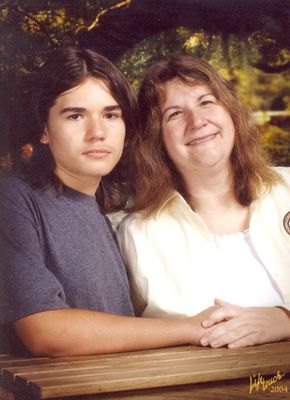 |
| DEBBIE AND JEFF JOHNSTON |
Under current law, a school board must adopt rules for the control and discipline of students, but is not required to prohibit bullying or harassment (except sexual harassment) of students. The �Jeffrey Johnston Stand Up for All Students Act� requires each school district to adopt a bullying and harassment policy and outlaws �cyber-bullying.�
The bill was nationally recognized by BullyPolice U.S.A. as the best in the nation and is notable for its notification and training requirements that attempt to shift the focus from the victim to the actions of the bully.
Each year this bill has moved through the House. Unfortunately, the Senate has refused to hear the bill and the reasons are unclear. We are hopeful that a strong grassroots push, led by Debbie Johnston, will encourage the Senators to recognize the importance of this legislation.
Direct Shipment of Wine

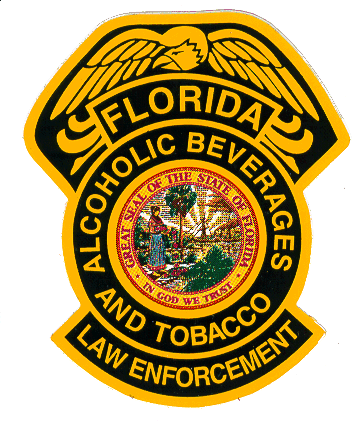 |
ALCOHOL, BEVERAGES
& TOBACCO DIVISION
ENFORCEMENT |
Florida law previously allowed wine produced by in-state wineries or purchased through a third party distributor to be directly shipped to a consumer, but prohibited the same for a winery located out of state.
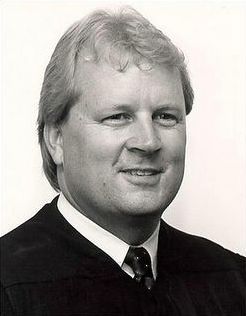 |
| JUDGE JAMES D. WHITTEMORE |
The 2005 Supreme Court decision, Granholm v. Heald, brought into question the legality of these restrictions. Florida�s direct shipping laws were subsequently challenged as unconstitutional in a case, Bainbridge, et al. v. Turner. On August 5, 2005, U.S. District Court Judge James D. Whittemore ruled that two sections of Florida�s direct shipment law were unconstitutional.
The ruling did not limit the state�s authority to collect taxes on wine or to enforce the prohibition of the sale of alcoholic beverages, including wine, to a person under the age of 21, but it did preclude enforcement of the ban on direct wine shipments from non-Florida wineries to Florida consumers.
We have worked hard to establish a regulatory framework that allows shippers to purchase a permit, pay taxes, mark boxes, and consent to the jurisdiction of the state. Passing meaningful legislation without grossly limiting consumer choice remains our challenge. We continue to talk with all interested parties and believe we are close to a compromise.
More to Come

There will be many issues to watch, and I will keep you posted on as many of them as I can.
 With a short 60-day session, things move very quickly and there is so much to do. I try to make it back to the district each week, but I will likely spend more time in Tallahassee as we enter the 2008 Legislative Session. Please visit our website at www.myfloridahouse.gov through a link to the Whip�s Office on the right side of the webpage for the latest public policy issue moving through the Florida House.
With a short 60-day session, things move very quickly and there is so much to do. I try to make it back to the district each week, but I will likely spend more time in Tallahassee as we enter the 2008 Legislative Session. Please visit our website at www.myfloridahouse.gov through a link to the Whip�s Office on the right side of the webpage for the latest public policy issue moving through the Florida House.
During the next 60 days we will work long hours, virtually 7 days a week, but I continue to enjoy every moment. If you have any specific questions about any issue do not hesitate to contact me anytime at [email protected] or call my legislative staff, Aaron Nevins and Mike Miller. I try to respond to all emails and calls within 24 hours, but if something is urgent, Aaron or Mike will reach me. Your opinions and concerns are very important to me, and I look forward to communicating with you throughout the coming weeks. Thank you for continued support and for allowing me to serve as your representative in the Florida House.
Sincerely,�

Ellyn Bogdanoff
Majority Whip
Florida House of Representatives � District 91
Exactly one year after Governor Crist signed legislation designed to lower property insurance premiums, the Florida Senate has convened a special Select Committee to investigate why certain insurance companies are not passing the savings on to policyholders, as required by law.
In December, I called for the creation of a Senate Select Committee on Property Insurance Accountability. The purpose of the committee is to uncover why insurance companies failed to lower premiums after the State took on a substantial portion of risk. We have now notified selected insurance company executives that we will require them to testify under oath about their pricing practices and increased profits.
The committee initiated our work last week with expert testimony from J. Robert Hunter, a former Texas insurance commissioner and high-ranking official in both Republican and Democratic administrations in Washington. Mr. Hunter told the Select Committee that, had certain insurers followed the law, their customers would have seen bigger premium reductions.
Insurance companies testified a year ago that the biggest reason for mounting rates following the 2004-2005 hurricane seasons was the cost of reinsurance � coverage insurers themselves purchase for catastrophic events. To help alleviate this burden on Floridians, the State agreed to provide reinsurance at a fraction of the price charged by commercial reinsurers with the understanding that 100 percent of the savings would be passed along to consumers.
Mr. Hunter concluded that instead of passing along the savings to Floridians, a number of large insurance companies wrongfully diverted those discounts to other purposes including: excess profits, buying back stock and purchasing unnecessary excess reinsurance from related or parent companies at inflated prices.
State Insurance Commissioner Kevin McCarty was careful to indicate that not all companies failed to reduce rates. McCarty presented a list of companies that cut premium costs to their customers by 20 to 30 percent. By contrast, the Insurance Commissioner pointed out that the better known, national brand name insurers had offered far smaller decreases and some had the audacity to seek rate increases which the state quickly denied.
Floridians have serious questions about what happened to the savings we were promised. Those insurance companies that received the benefit of placing their reinsurance risk on the backs of the people of Florida in exchange for rate relief now owe our citizens some answers. Those answers should lead to fair and honest dealings with policyholders. The Select Committee is not out to arbitrarily punish insurers. But we are determined that all Floridians should see the relief they were promised, and we will pursue that goal with the full force of the law.
That�s why our Select Committee is holding public hearings and putting witnesses under oath. The Legislature is pressing hard to alleviate the burden on homeowners. It�s time for insurance companies to hold up their end of the deal.